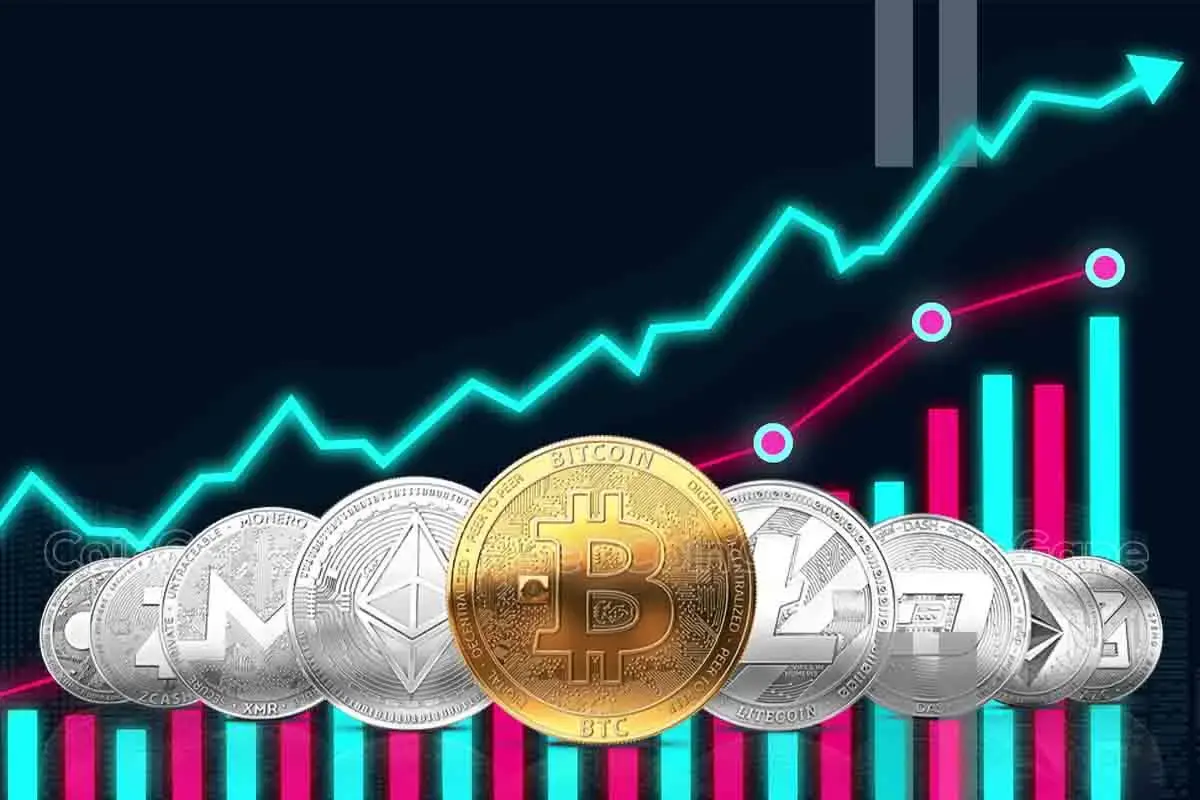On October 4, the overall crypto market displayed a diverging trend, experiencing growth following an unexpected rise in US job creation reported by the Labor Department.
Bitcoin was seen trading above $62,200 on the back of a rally in the broader equity market.
Huge volatility and daily divergence, in this case, was an action from the report of the September nonfarm payrolls that showed the US economy added 254,000 jobs, way beyond the expected 147,000. Meanwhile, the unemployment rate went down to 4.1%.
Crypto Market Volatility Mirrors Global Uncertainty Amidst War and Inflation
A strong jobs report reassured investors of a resilient US economy, shifting expectations for aggressive Federal Reserve rate cuts. Fed funds futures prices from CME Group, which track market expectations for future interest rate movements, showed the probability of a further 0.5% rate reduction in November fell sharply from over 50% last week to a low of under 2% on October 4. The curve steepened after a stronger-than-expected US jobs report showed a robust labor market that tempered fears of aggressive Federal Reserve interest rate cuts.
Ethereum’s inflation rate has surged to 0.74%, casting a shadow on its “ultrasound money” narrative, according to Binance’s Monthly Market Insights for October 2024. It showed Ether’s issuance rate is at a two-year peak, encouraged by reduced on-chain activity and lower burn rates casting doubts on the sustainability of the asset being deflationary. This is further catalyzed by the growth in layer-2 solutions such as Arbitrum and Optimism, which process transactions off-chain and lower the gas fees significantly.
As tensions between Israel and Iran increase and the continued Russian invasion of the eastern Ukrainian village of Vugledar, “World War 3” has trended on Twitter as many nations are placed on high alert. This impacted the crypto market in many ways. While a full-scale war may not be in the immediate future, the likelihood of a peaceful settlement appears to be an inoperative belief in the current scenario. In these unstable times, difficult financial situations are foreseen ahead, and some think crypto may hold the answer.
“Uptober” Pessimism Could Fuel Bitcoin Surge
October once hailed as “Uptober,” is losing the vigor that once drove the case for this month being bullish. Analytics firm Santiment says social media mentions of “Uptober” have fizzled out since the start of the month.
Recently, Santiment reported traders flipped to bearish as the hopes that this month would automatically mean gains for the crypto market are being abandoned. Instead, social media has moved toward memes and mentions of “Selltober” and “Octobear.” At least, that reflects a growing pessimism.
🎃 Mentions of “Uptober” have declined significantly, painting a picture that traders have become much more bearish on the idea of this month being an automatic money printer for crypto. The lack of optimism opens the door for (at least) a short-term bounce. 📈 https://t.co/iACWMGPvSs
— Santiment (@santimentfeed) October 3, 2024
Younger voters, mainly Gen Z and Millennials, are becoming a significant force in the upcoming election, with over half likely to support candidates favoring crypto policies, according to a Stand With Crypto Alliance survey. In swing states, 21% of voters prioritize crypto issues. This demographic shift is influencing political stances, with figures like Donald Trump embracing crypto donations and advocating for a Bitcoin reserve, while Robert F. Kennedy Jr. and Kamala Harris also starting to signal pro-crypto positions.
CPI and PPI Reports Could Make or Break BTC’s Next Move
This is a very critical time for the crypto market, with investors expecting the CPI and PPI reports next week that might have strong effects on the price of Bitcoin.
Despite Bitcoin hovering around the $62k support level, this economic indicator might trigger a breakout that can change investor sentiment, hence affecting future movements in the market within the next few days. These are changes the reports might bring that are closely watched by crypto market analysts.
The CPI and PPI are significant indicators of inflationary tendencies, impacting both consumer spending and the pricing by producers. Assets that would otherwise be perceived to hedge against inflation, like Bitcoin, would be appreciated based on those very influences.
In the event of positive inflation data, investor confidence increases, thus apportioning more funds to assets perceived to be good investments. With persisting economic instability and monetary policy remaining key, the price of Bitcoin has gone up to reflect its increasing positioning as a macroeconomic asset. Bitcoin is evolving from a speculated asset to an established inflation hedge in the financial landscape.
Disclaimer: The presented content may include the personal opinion of the author and is subject to market condition. Do your market research before investing in cryptocurrencies. The author or the publication does not hold any responsibility for your personal financial loss.

Leave a Reply